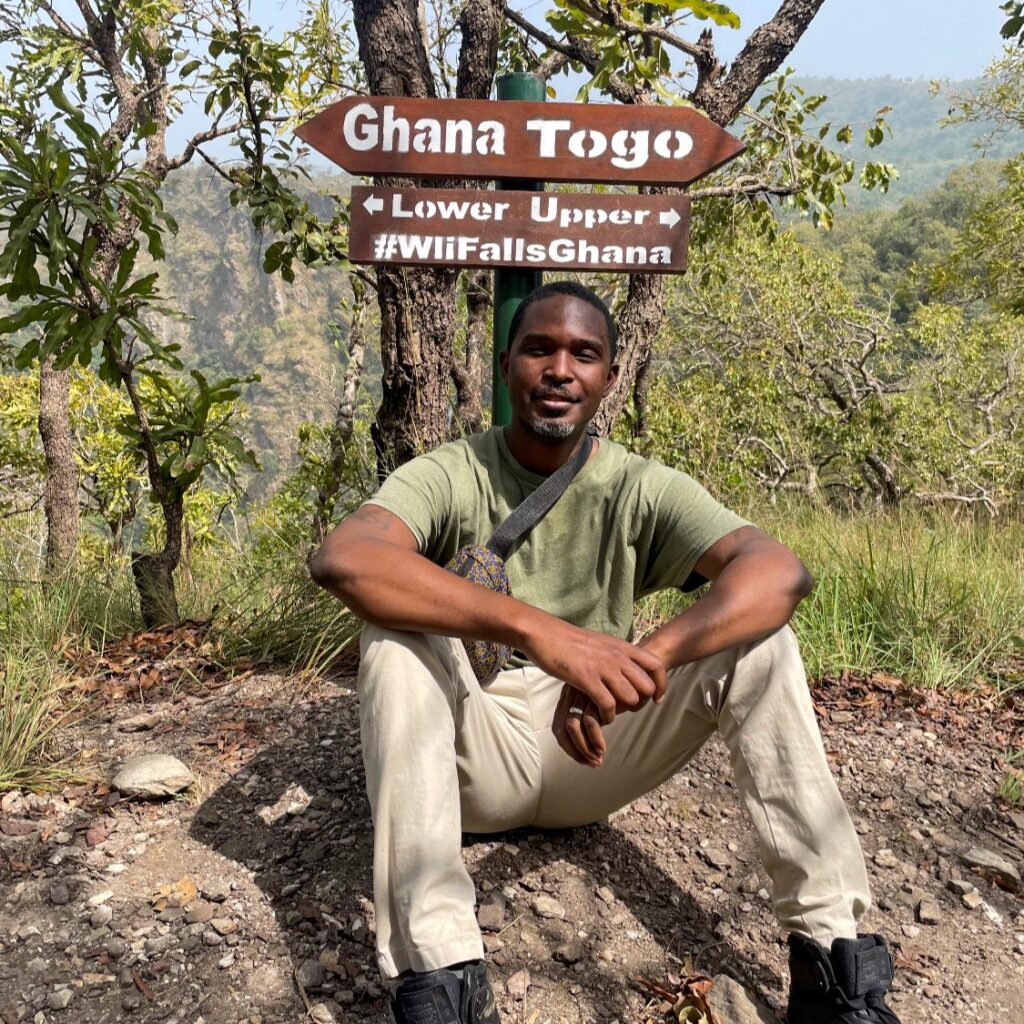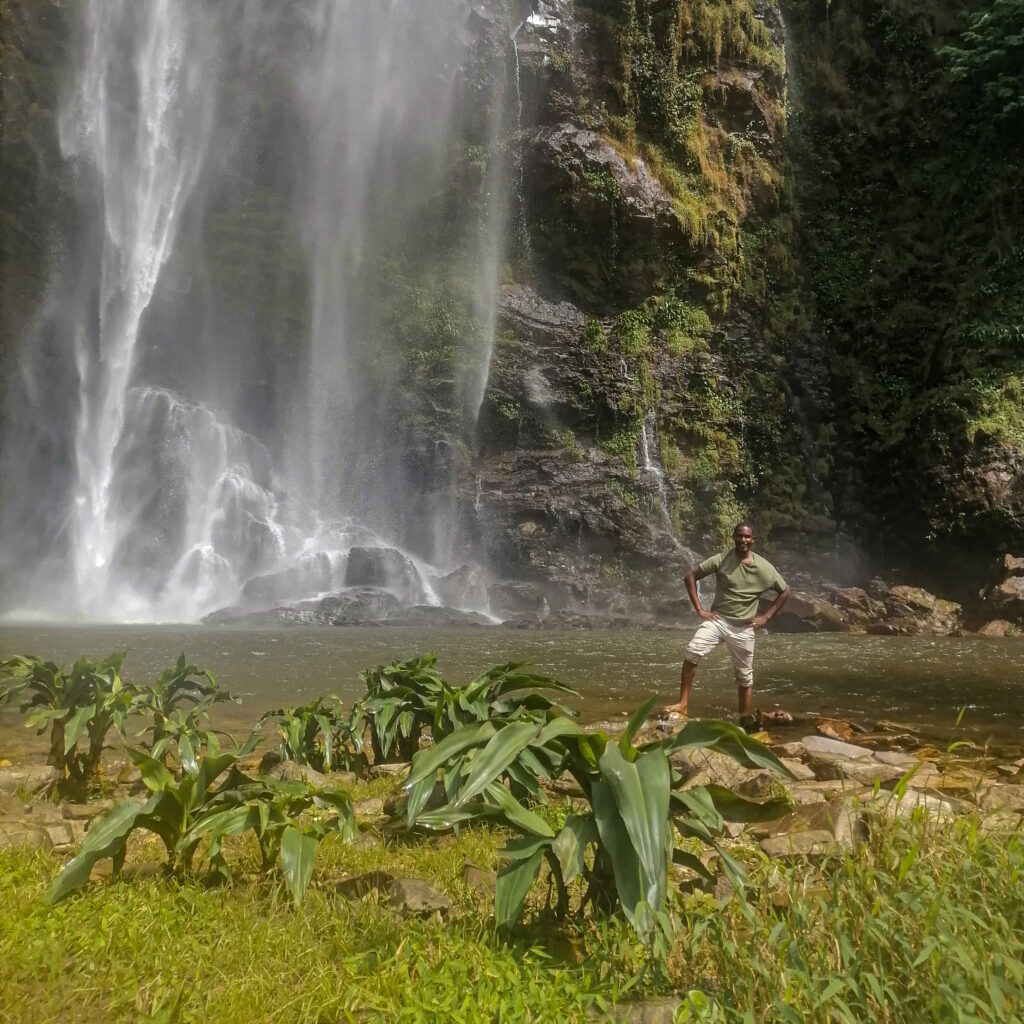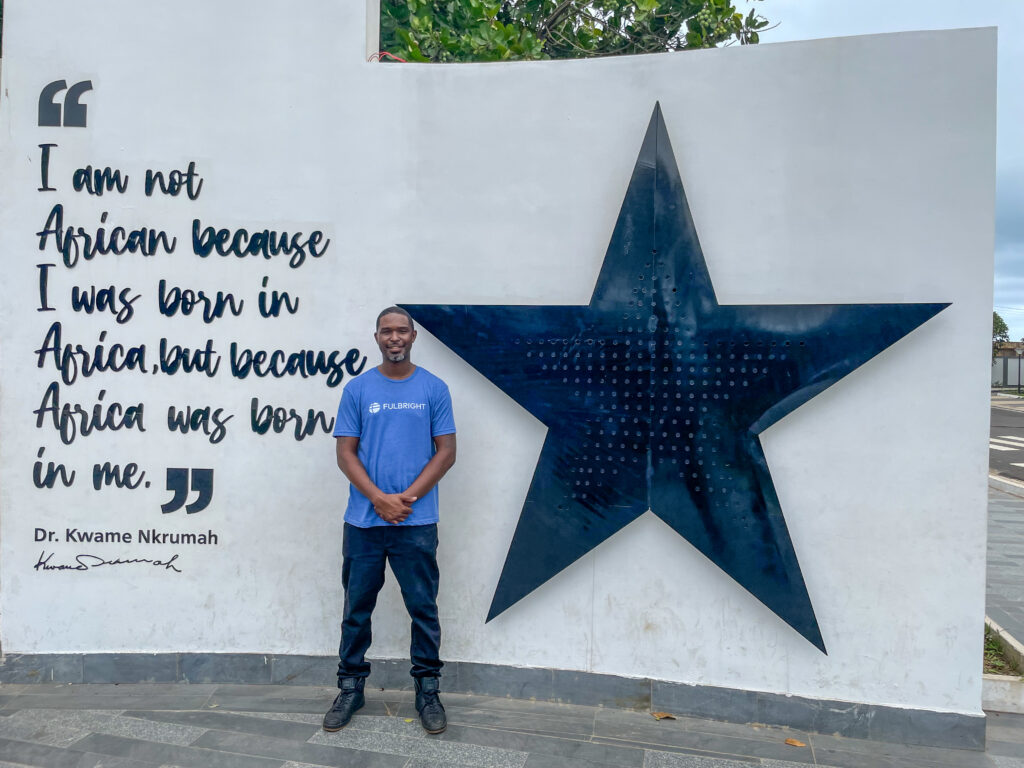HBCU Professor collaborates on water purification and youth mentorship in Ghana
Dr. Karl Jackson
Chemistry Professor and Science Researcher
Fulbright U.S. Scholar to Ghana
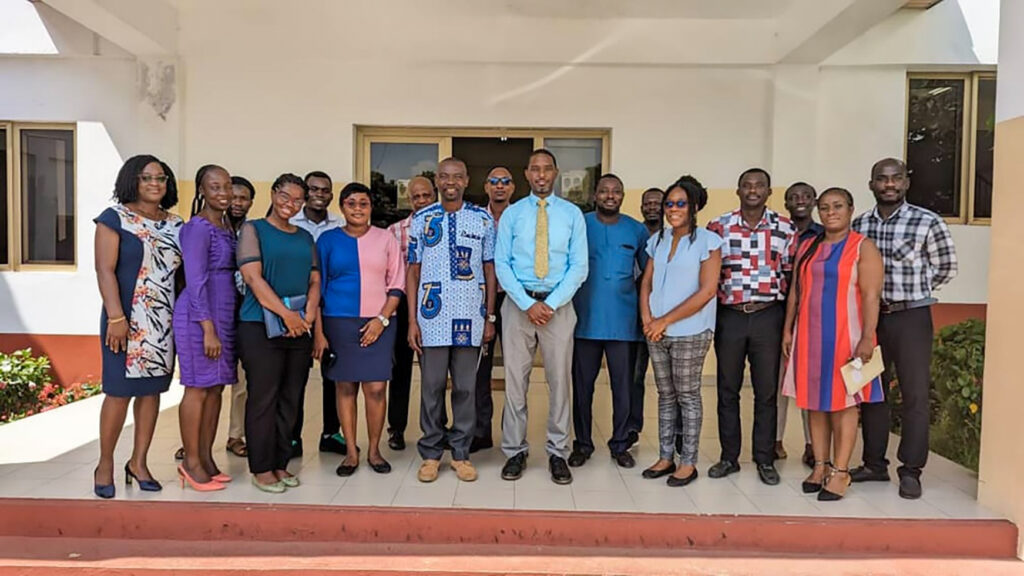
Dr. Karl Jackson, PhD is an accomplished scientist who has served as a professor of chemistry at two HBCUs, Virginia Union University and Virginia State University. VSU is both his current institution, and also where he also earned his bachelor’s degree. The Center for the Advancement of STEM leadership has recognized his work to facilitate student and faculty engagement at HBCUs in STEM fields by naming him a Leadership Fellow.
Dr. Jackson has presented on research strategies for documenting leadership in STEM at HBCUs. His work to create a more diverse and inclusive STEM field has contributed to producing new STEM leaders at HBCUs and other institutions. His efforts to diversify participation in the sciences has also been recognized by the Institute in Critical Quantitative, Computational & Mixed Methodologies (ICQCM), which named him a National Science Foundation QCM Scholar.
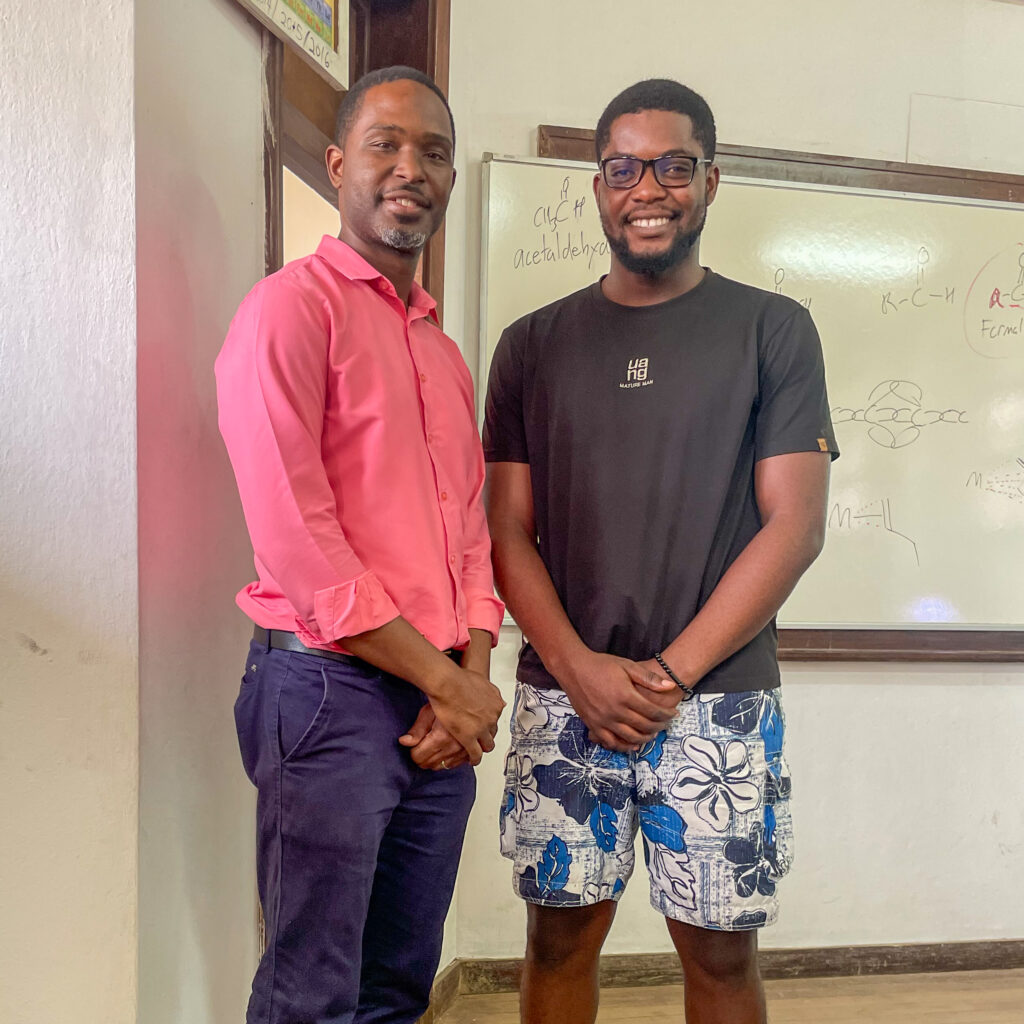
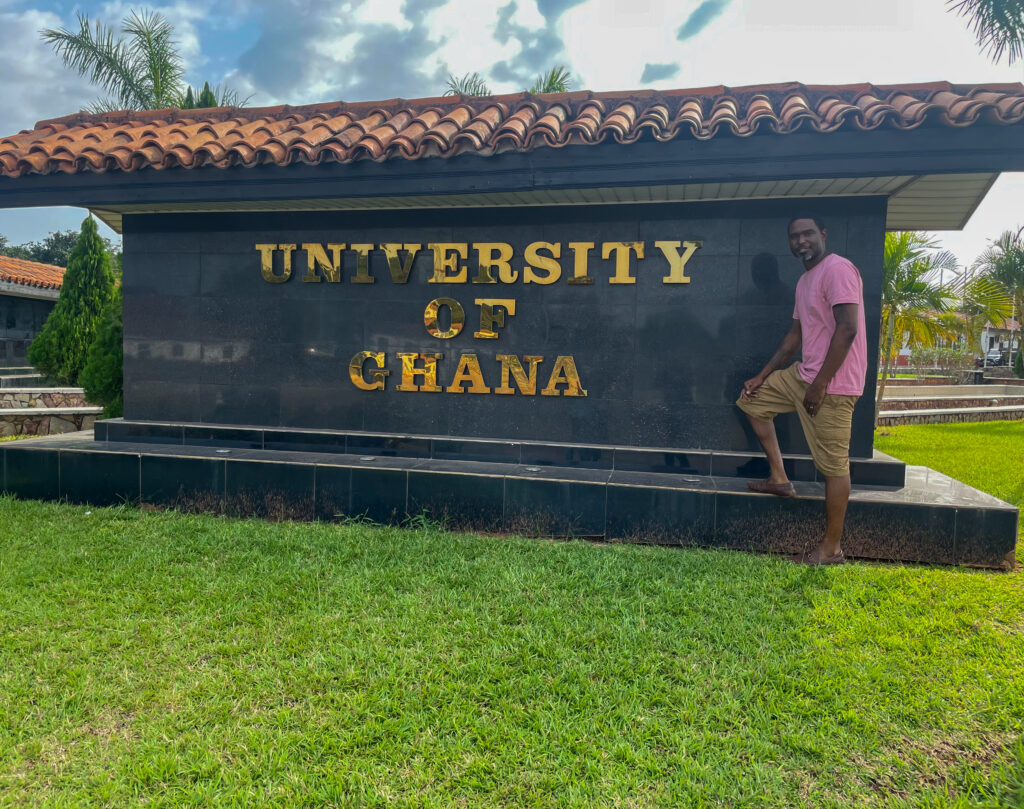
In 2023, a Fulbright U.S. Scholar award to Ghana gave Dr. Jackson a renewed commitment to service, based on international scholarly collaboration and a memorable experience volunteering with a youth mentorship organization. He says that his Fulbright experience in Ghana shaped his career goals and aspirations in ways he “never could have anticipated.”
His U.S. Fulbright Scholar award allowed him to continue the research trajectory that he had started while earning his PhD in inorganic chemistry at Virginia Commonwealth University on the design and synthesis of micro- and nanoporous polymers for use in hydrogen storage and clean air applications.
Dr. Jackson spent a semester teaching and collaboratively researching at University of Ghana, focusing on developing porous polymer materials called “metal-organic frameworks” (MOFs) to meet urgent water-purification needs. “I have established collaborations that will continue long after this experience, as we explore expanding the applications of MOFs to address environmental challenges specific to the West African region,” Dr. Jackson explains.
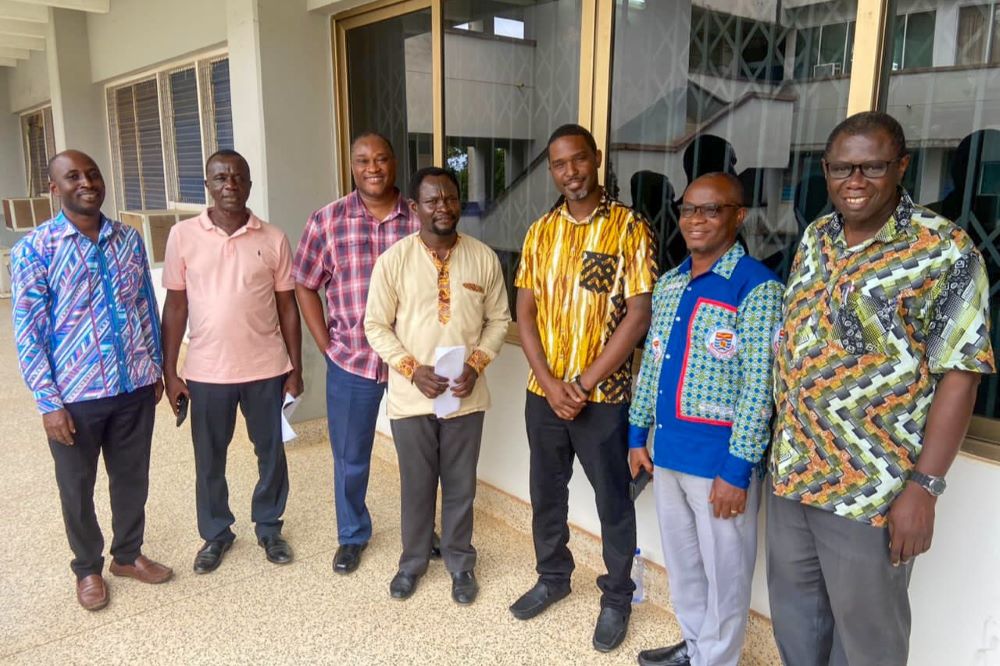
While in Ghana, he also submitted a new grant proposal focused on studying the applications of MOFs for targeted delivery of chemotherapy drugs to attack cancer cells, aiming to lower toxicity to healthy cells. The study was awarded over $500,000 in funding from the National Science Foundation. The grant also focuses on engaging undergraduate students of color in research and STEM-focused initiatives that promote social and psychological well-being as well as career and graduate school preparedness.
In addition to his collaborative research, he taught new graduate and undergraduate courses in organometallics (compounds that contain a bond between a carbon atom and a metal atom.) Dr. Jackson says he was fortunate to collaborate with a flexible and accommodating team in the University of Ghana’s chemistry department, which enabled him to fulfill his professional responsibilities while fully immersing himself in the local culture.
Dr. Jackson volunteered with a youth mentoring organization called Fafali, which means “There is Peace” in the Ewe language. Fafali runs after-school programs, using sports to engage children and provide guidance towards educational opportunities. While he anticipated collaborative scholarly engagement with the students and faculty at the University of Ghana, Dr. Jackson says, “I could not have predicted the great impact that community service with the Fafali Organization would have had on me.”
Dr. Jackson explains that the most inspiring part of working with Fafali was the unforgettable bond he formed with the children, combined with witnessing “the selfless dedication of the leadership and staff, day in and day out.” He says, “It reminded me of the passion I once had to make a difference in my own community that somehow got eclipsed by other things down through the years.” Based on this powerful experience, Dr. Jackson says he has since recommitted to establishing a similar community service to provide mentorship and guidance to struggling youth in his hometown.
While in Ghana, Dr. Jackson also took the opportunity to visit the Cape Coast Castle, the departure point of thousands of enslaved Africans to the Americas and an “essential” part of his journey. “As an African American,” he reflects, “this took my experience beyond just teaching, research, and service. A dark relic served as one of many deeply meaningful encounters that has helped foster a sense of reconnection to the land and culture of my ancestors that was lost in the slave trade.”
Looking back at his international exchange experience, Dr. Jackson says he would strongly encourage HBCU faculty and students to take advantage of opportunities like those offered through the Fulbright program not only for professional development, but for personal growth and inspiration. Dr. Jackson’s perspective is that visiting Africa offers a unique fulfillment for African Americans, but he believes it would be a highly valuable experience for anyone to spend significant time in a new culture. “It is essential to our understanding of how the U.S. is seen from other perspectives, as it will undoubtedly influence one’s worldview.”
